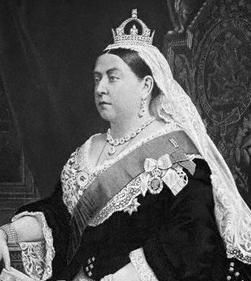德国建成世界最强磁场
|
Rossendorf set a new world record for magnetic fields with 91.4 teslas. To reach this record, Sergei Zherlitsyn and his colleagues at the High Magnetic Field Laboratory Dresden (HLD) developed a coil(线圈) weighing about 200 kilograms in which electric current create the giant magnetic field – for a period of a few milliseconds. The coil survived the experiment unscathed(未受伤的) . "With this record, we're not really that interested in reaching top field values, but instead in using it for research in materials science," explains Joachim Wosnitza, the HLD's Director. The scientists are actually proud of being the first user lab worldwide to make such high magnetic fields available for research. The more powerful a magnetic field is, the more precisely the scientists can examine those substances which are used for innovative electronic components or for so-called superconductors which conduct electricity without any resistance. Such high magnetic fields are generated by passing an electric current through a copper coil. But the magnetic field also influences the electric current because it tries to push the electric current out of the coil. The stronger the current flows, the more powerful these forces are. "At 25 teslas, the copper would be torn apart," Joachim Wosnitza describes a potential scenario of this conflict between the magnetic field and the metal. In comparison: A standard commercial refrigerator magnet has 0.05 teslas. In order to examine as closely as possible the electric charge in the materials of tomorrow, researchers need higher magnetic fields with, for example, 90 or 100 teslas. "At 100 teslas, though, the Lorentz force inside the copper would generate a pressure which equals 40,000 times the air pressure at sea level," calculates Joachim Wosnitza. These forces would tear copper apart like an explosion. That is why researchers use specific copper alloys which can withstand ten thousand times the atmospheric pressure. They then add a corset made from a special fiber that is typically used for bulletproof vests and which holds the alloy together from the outside. The HZDR technicians wind six of these special wires with corsets into a coil that has a hollow space of 16 millimeters at its center. This permits the generation of 50 teslas within this special coil when a brief but powerful electric pulse flashes through the copper – a process that is over after a mere 0.02 seconds. But that's still, though, far away from the world record of 89 teslas which the US Americans held in Los Alamos for several years. And that is why the technicians put a second coil consisting of twelve layers of copper wire around the first one. This wire, though, can only withstand 2,500 times the atmospheric pressure. But protected by a plastic corset(紧身衣) , a current pulse lasting only a fifth of a second suffices to create a 40 tesla magnetic field inside the coil. Together with the 50 teslas of the inner coil, this adds up to the world record of more than 90 teslas. Covered by a steel jacket, this double coil has a height of 55 centimeters and a diameter of 32 centimeters; thus, resembling a fairly large water bucket. For several weeks, the HZDR technicians worked on the coil which not only set the world record, but which will also permit many future studies of new materials in the record magnetic field. For such experiments, researchers are flocking to Dresden not only from Regensburg, Garching, and Karlsruhe, but also from all over Europe. Even Japanese and US American scientists are already making reservations at the HZDR so that they can analyze their materials here. And since today the existing five rooms equipped with similar coils can no longer handle the crowds of researchers, an additional six of these "pulse cells" will be built by 2015. Magnetic-field research at the HZDR actually continues to expand even after the world record. |








